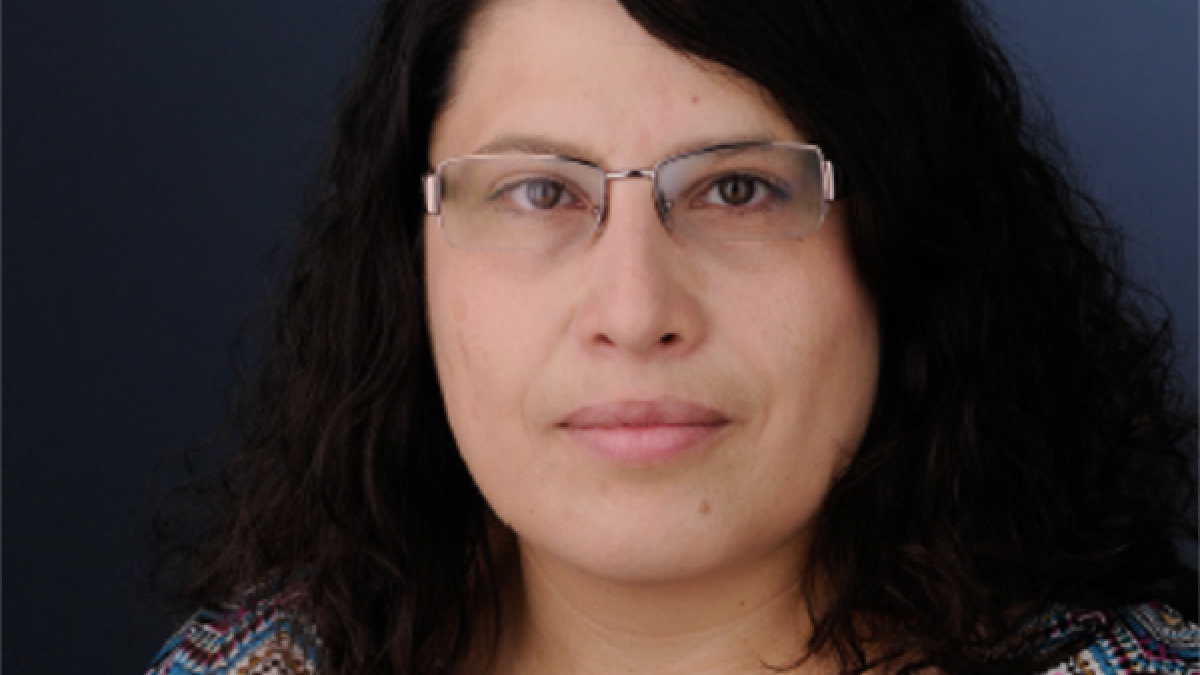ASU professor offers inclusive music therapy class for kids through Arizona Commission on the Arts grant

Eugenia Hernandez-Ruiz
Eugenia Hernandez-Ruiz, assistant professor of music therapy in the School of Music, Dance and Theatre, recently received a $6,800 grant from the Arizona Commission on the Arts Youth Engagement Program to implement a community-embedded project for autistic and neurotypical children. The grant includes a partnership with the i.d.e.a. Museum and music and research components.
“We are very excited and grateful to the AZ Commission for the Arts for this grant that allows us to do more in the community,” Hernandez-Ruiz said.
Youth Arts Engagement Program grants support arts learning projects for young people that occur outside of traditional school hours and feature sequential, hands-on learning to develop artistic skills, processes and creativity.
The project will provide a five-week inclusive music program for young children and their parents at the i.d.e.a. Museum in Mesa. In the sessions, parents and children will participate in music activities that promote communication skills and address sensory needs of all children between 1 and 5 years of age. It launched March 29 and will take place weekly through April 26.
Families with neurotypical and autistic children were invited to participate in the community-embedded project. Hernandez-Ruiz said that a safe space is created for neurotypical children and their parents to understand, through the lived experience, that neurodivergent children can and should be welcomed in all spaces.
“We hope to create opportunities for all families to learn from each other in community spaces where children typically grow and develop,” she said.
Hernandez-Ruiz said the i.d.e.a Museum also assisted with recruitment. She said that, originally, part of the grant would pay for families’ entrance fees the day they attended the program. But once they saw the value of the program, the museum extended the benefit for families by providing a one-year membership to the first 10 families.
Graduate students in Hernandez-Ruiz’s seminar on music therapy and autism will participate in the music component of the grant, and Professor Evan Tobias’ Qualitative Research Methods class will participate in the research component of the grant.
Hernandez-Ruiz’s students are designing and implementing the sessions, based on evidence-based strategies that have been discussed during the semester. She said the approach is unique in that parents are being empowered through music strategies they can practice at home.
“We hope to help all parents, but particularly those of neurodivergent children, to feel successful in their interactions with their children while giving the children opportunities to be successful in their play and communication,” Hernandez-Ruiz said.
Hernandez-Ruiz said the doctoral students in the Qualitative Research Methods class will conduct interviews with both parents and music-therapy students to understand their experiences and how music therapists envision their learning to help improve future offerings. In doing so, they can apply their research skills in a community-embedded and relevant project.
“As one of the parents commented, ‘it’s a win-win-win situation,’” Hernandez-Ruiz said.
More Arts, humanities and education

Award-winning playwright shares her scriptwriting process with ASU students
Actions speak louder than words. That’s why award-winning playwright Y York is workshopping her latest play, "Becoming…

Exceeding great expectations in downtown Mesa
Anyone visiting downtown Mesa over the past couple of years has a lot to rave about: The bevy of restaurants, unique local shops…

Upcoming exhibition brings experimental art and more to the West Valley campus
Ask Tra Bouscaren how he got into art and his answer is simple.“Art saved my life when I was 19,” he says. “I was in a…

